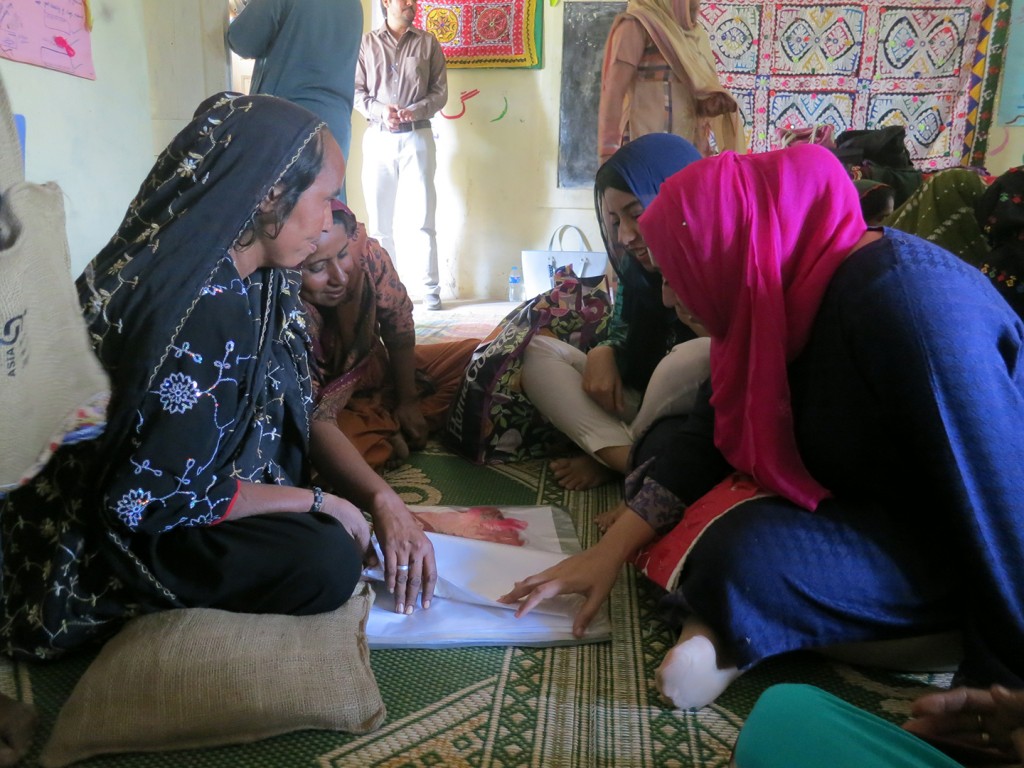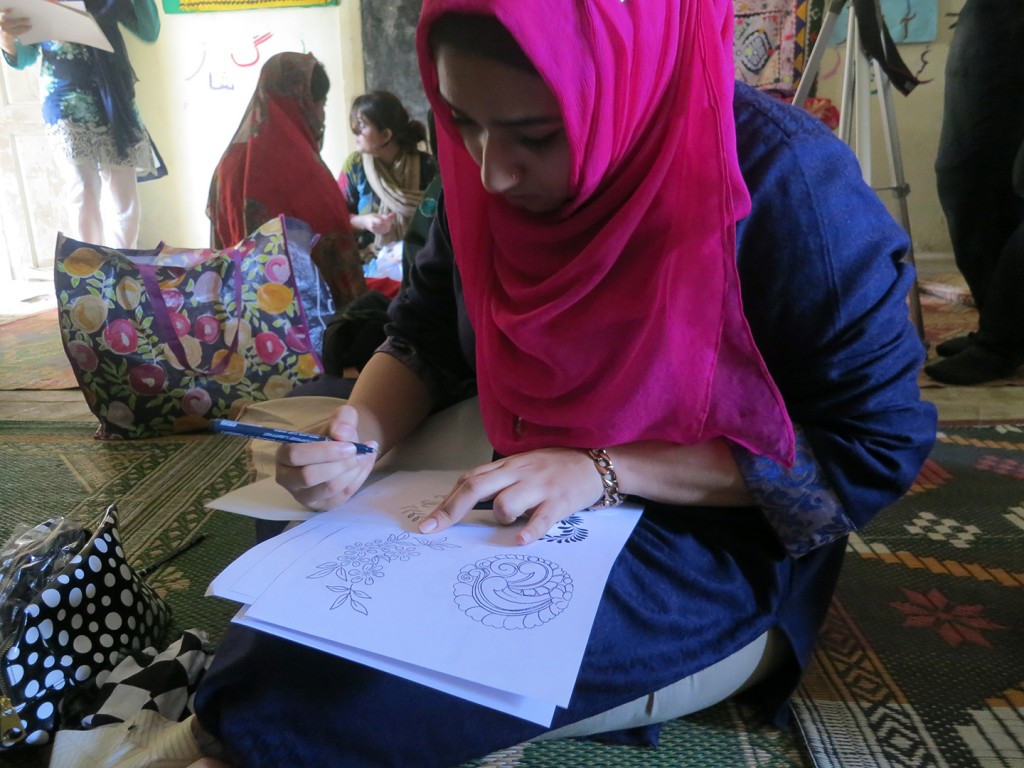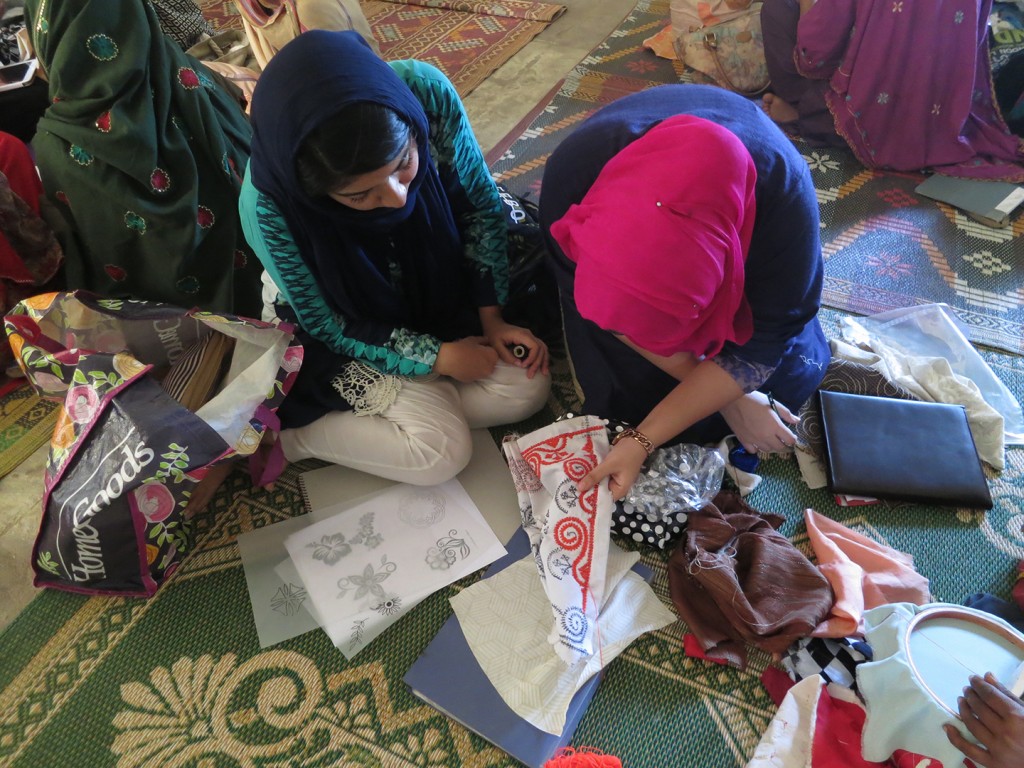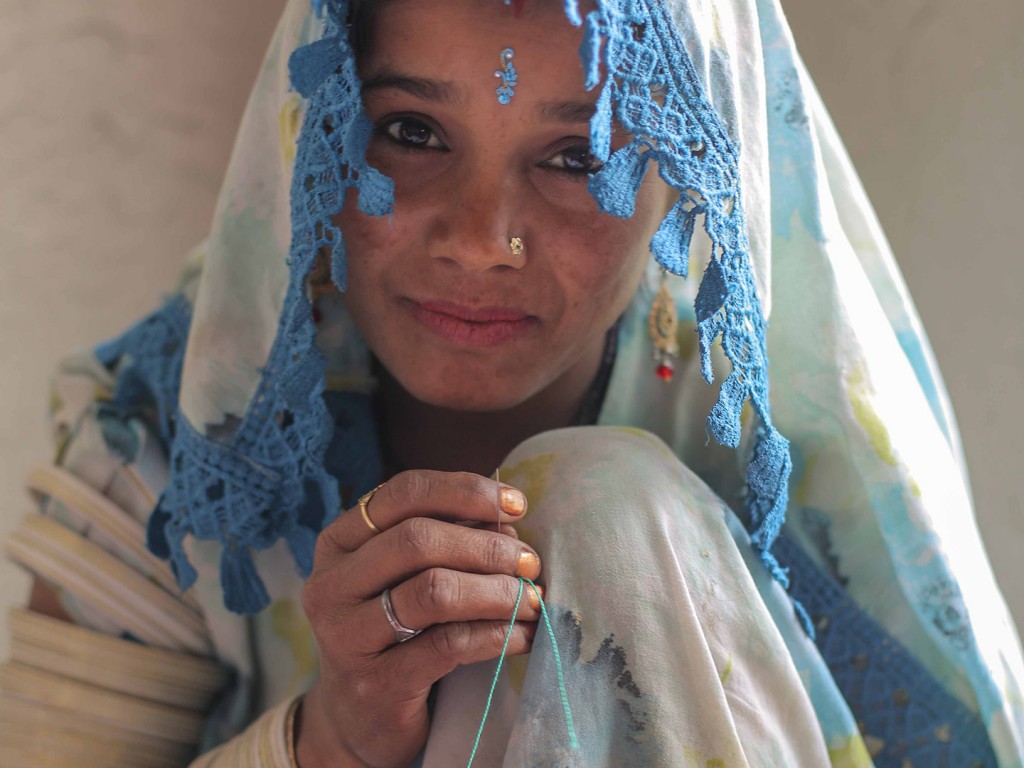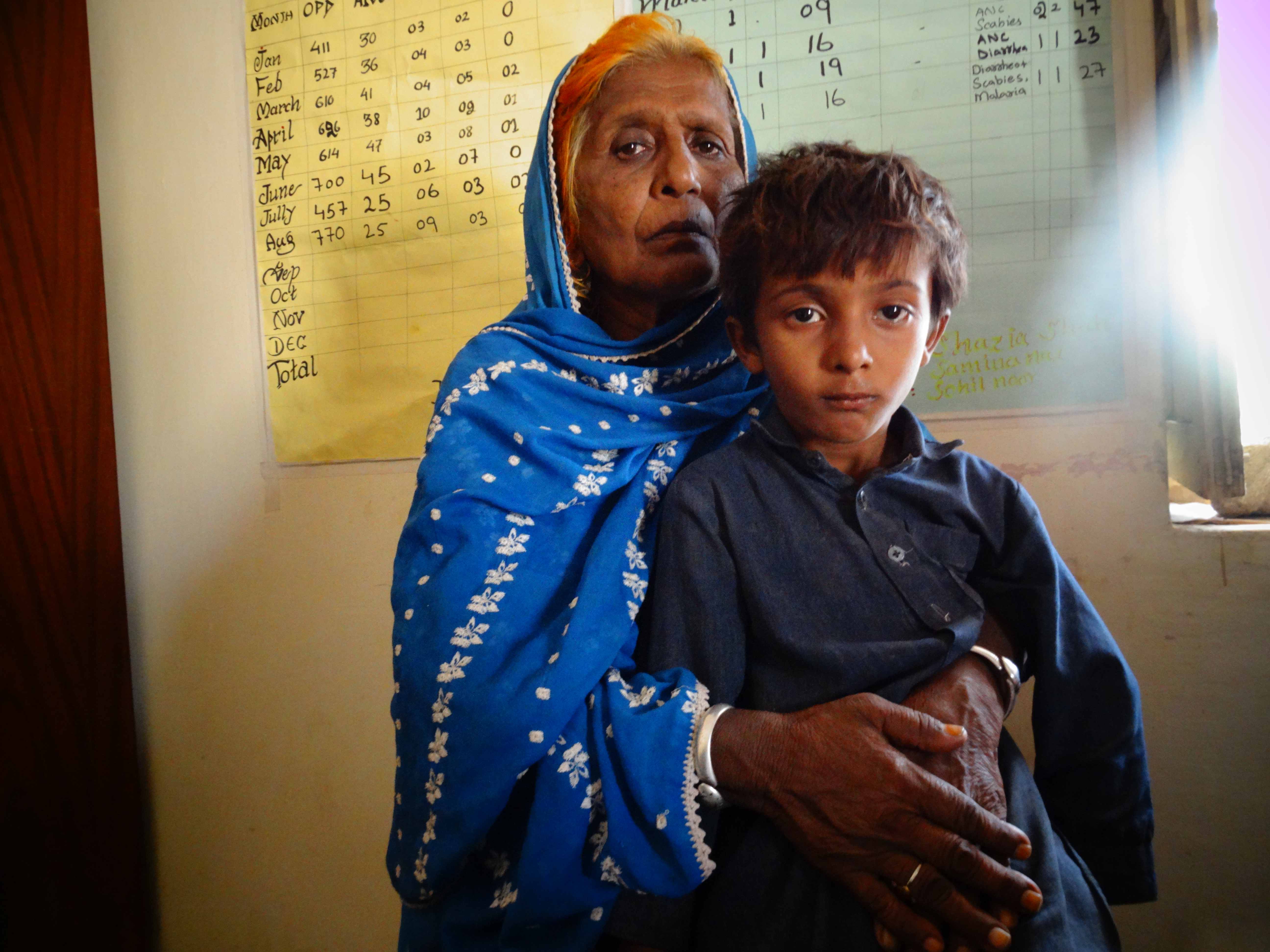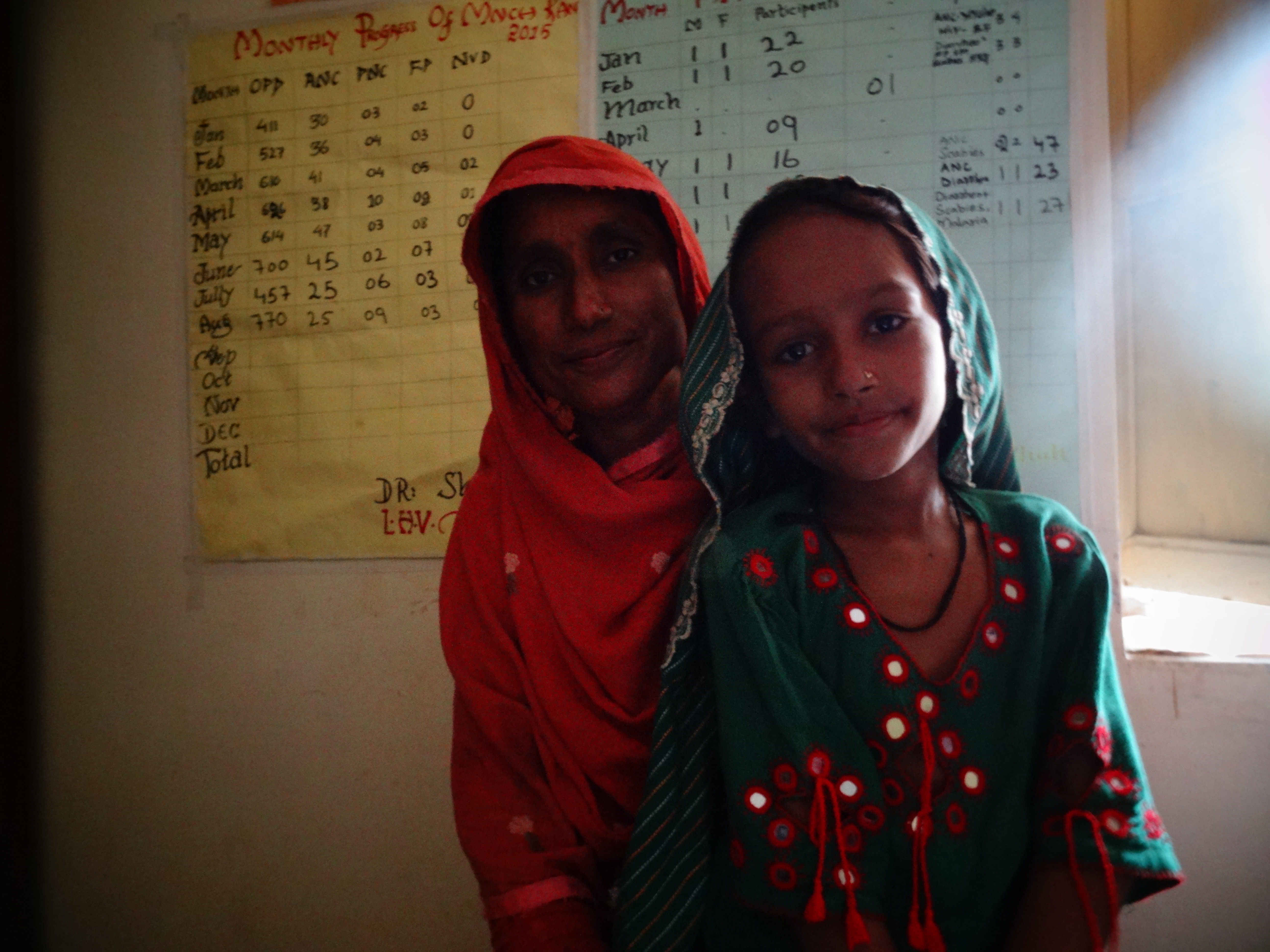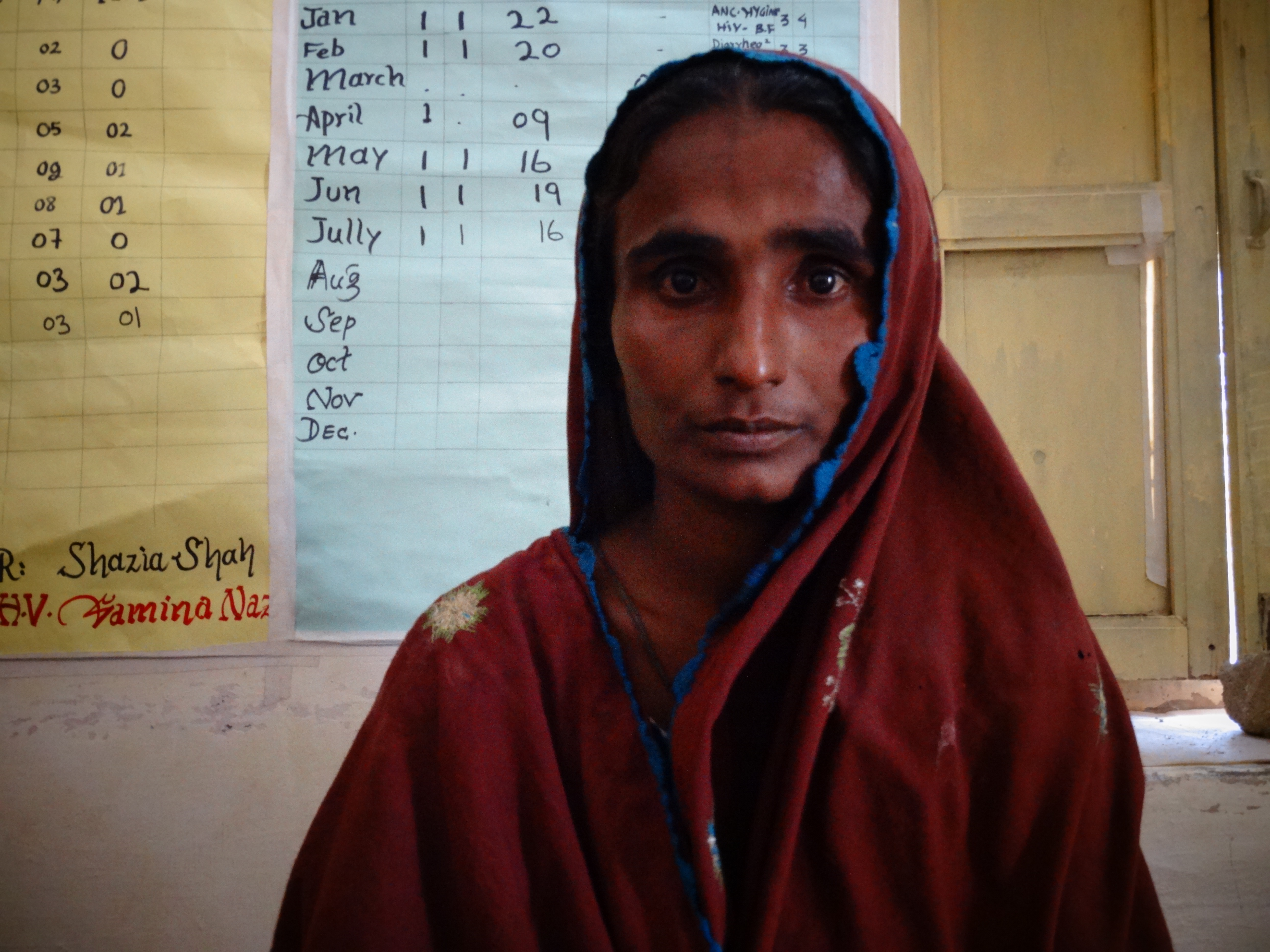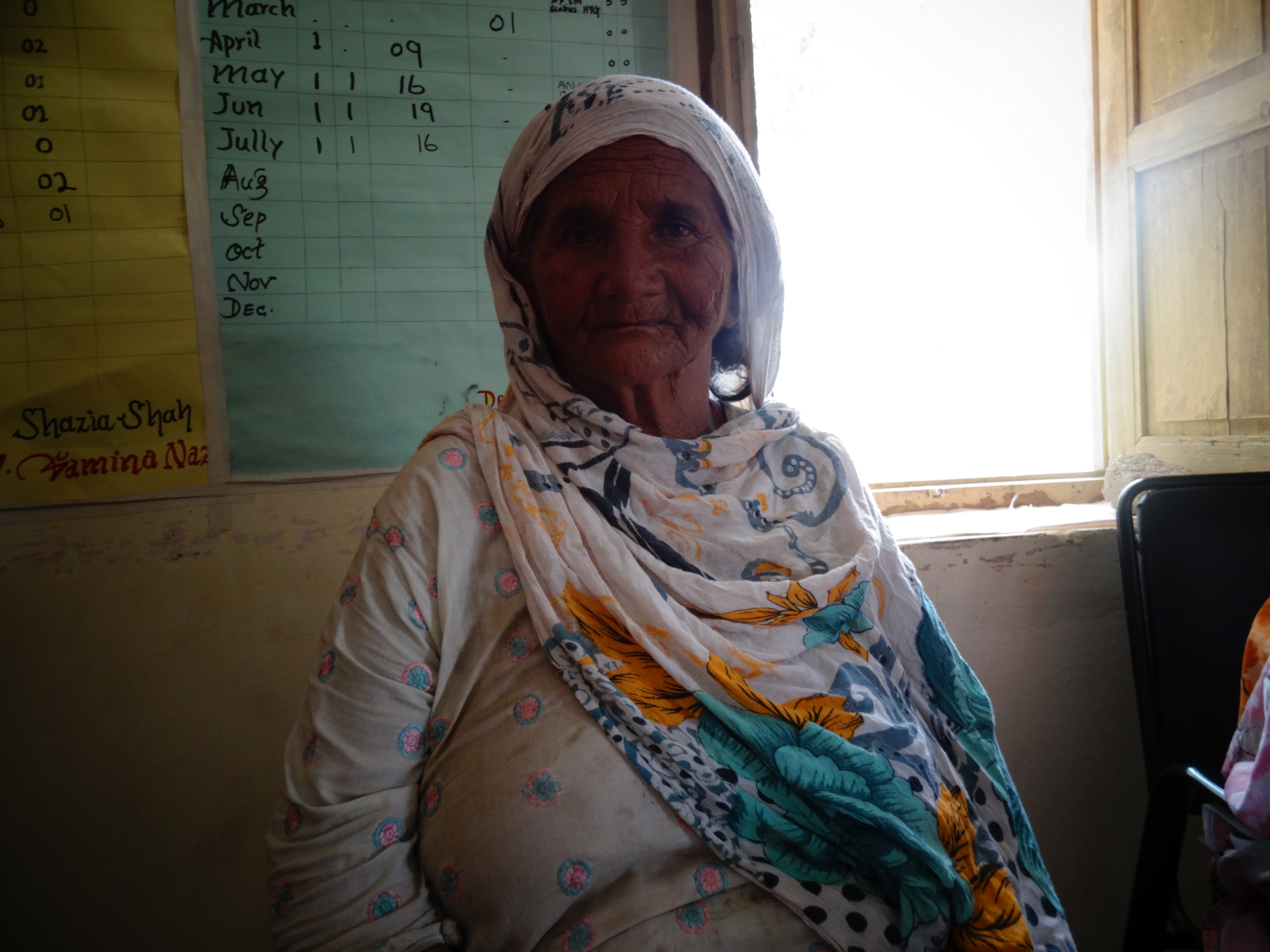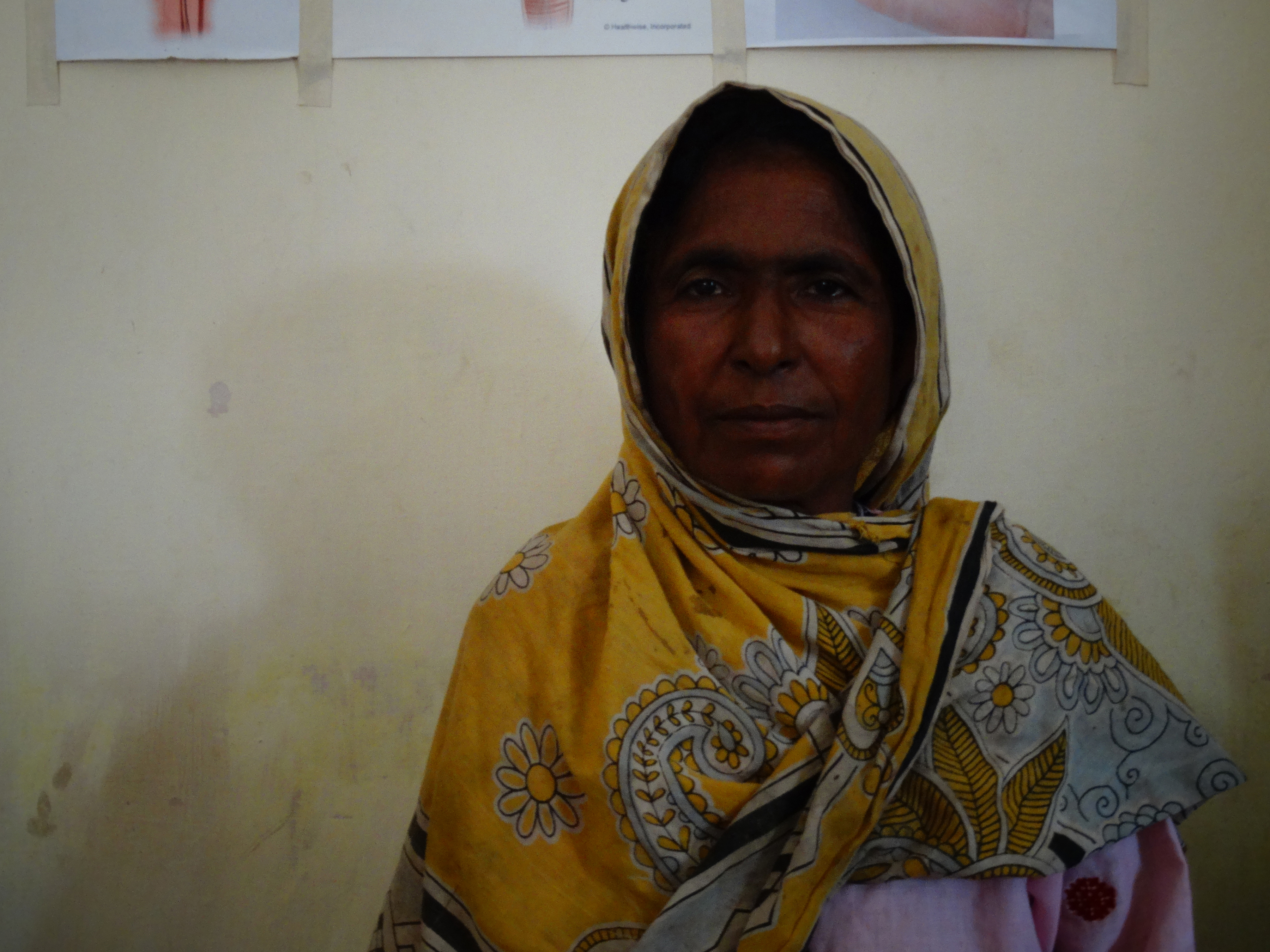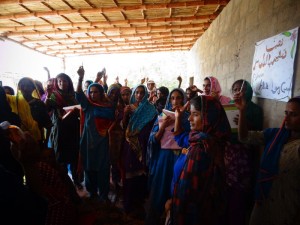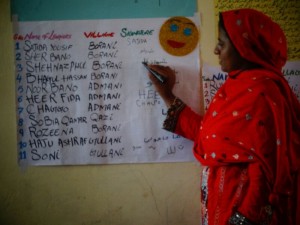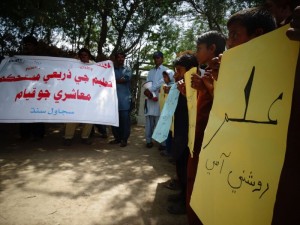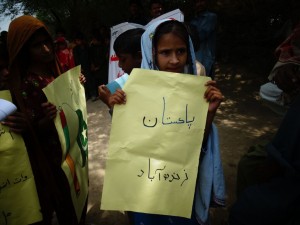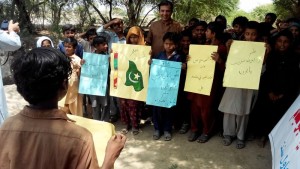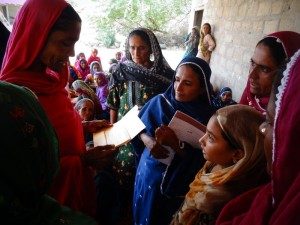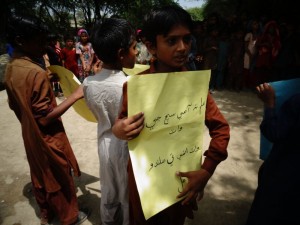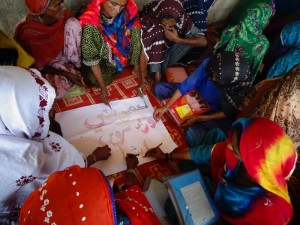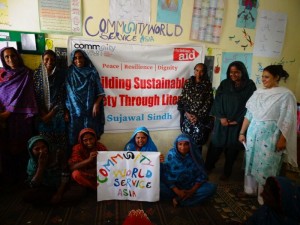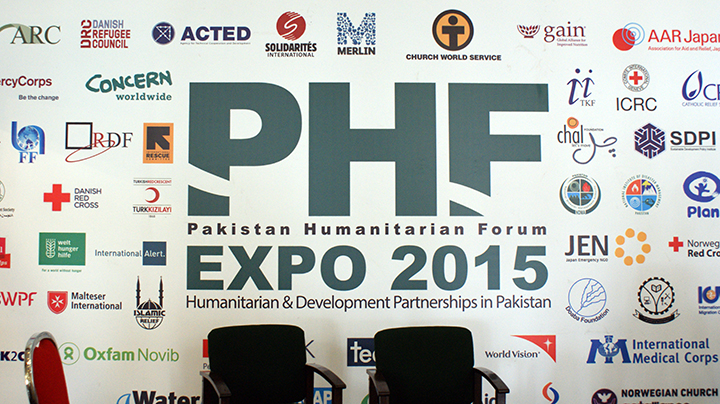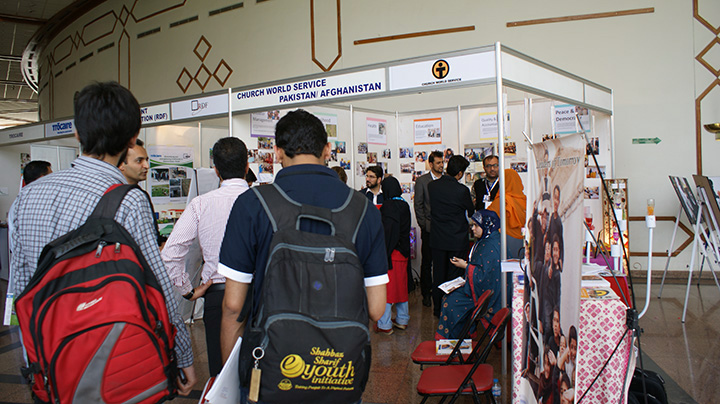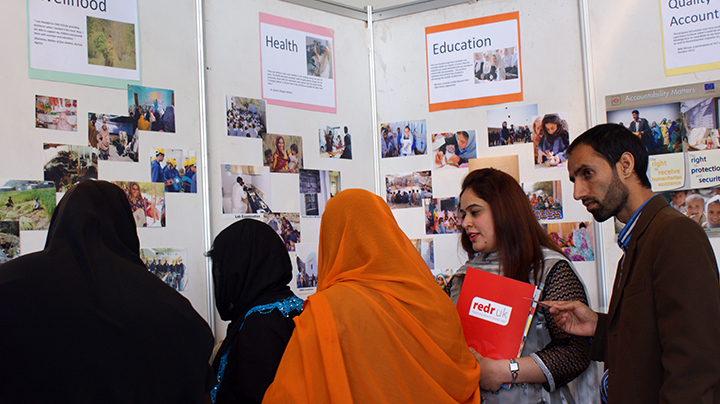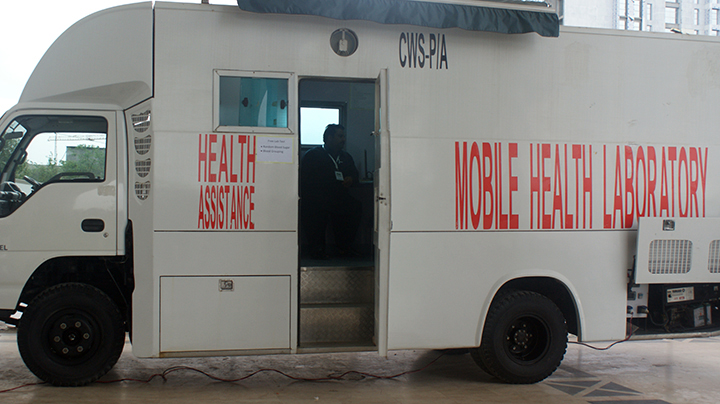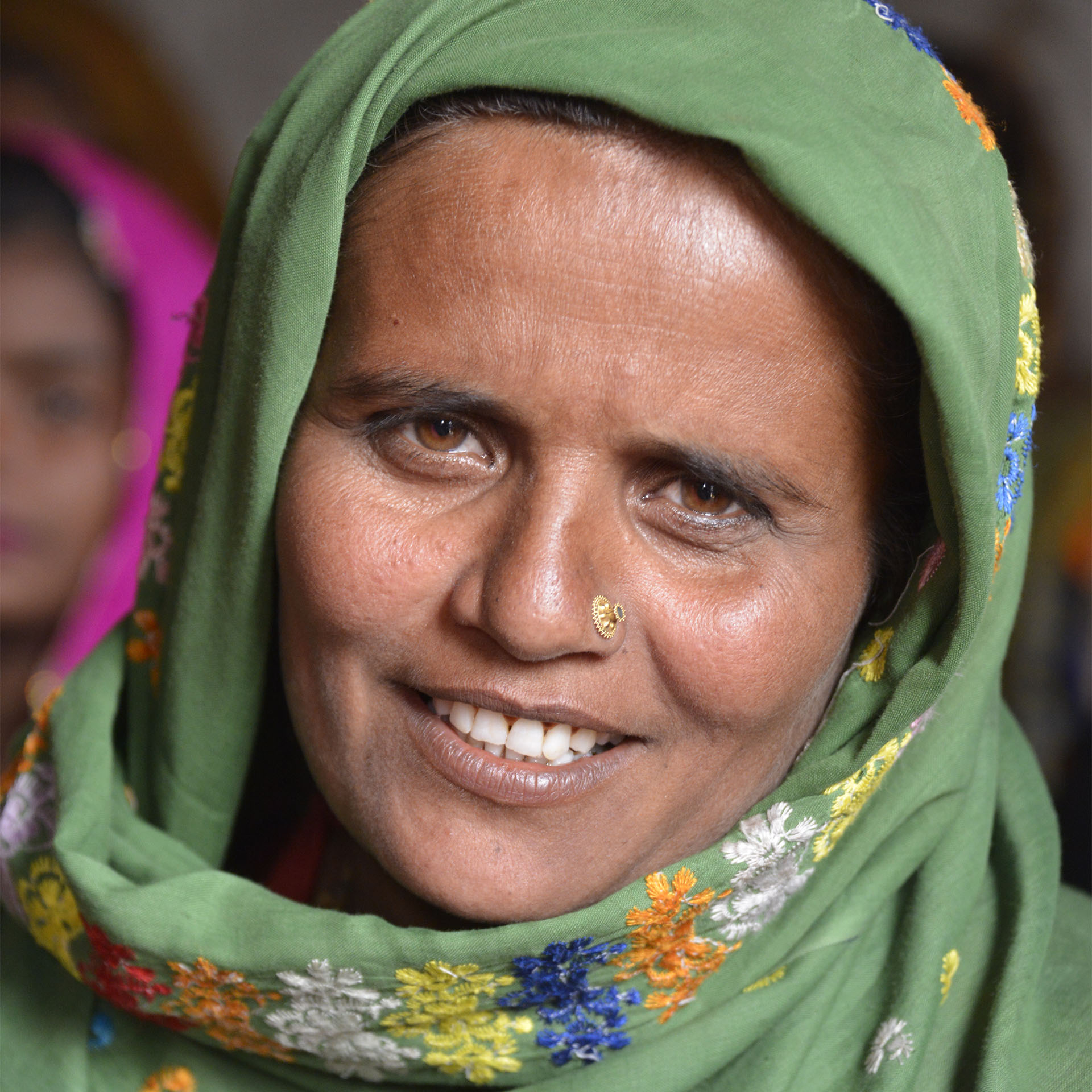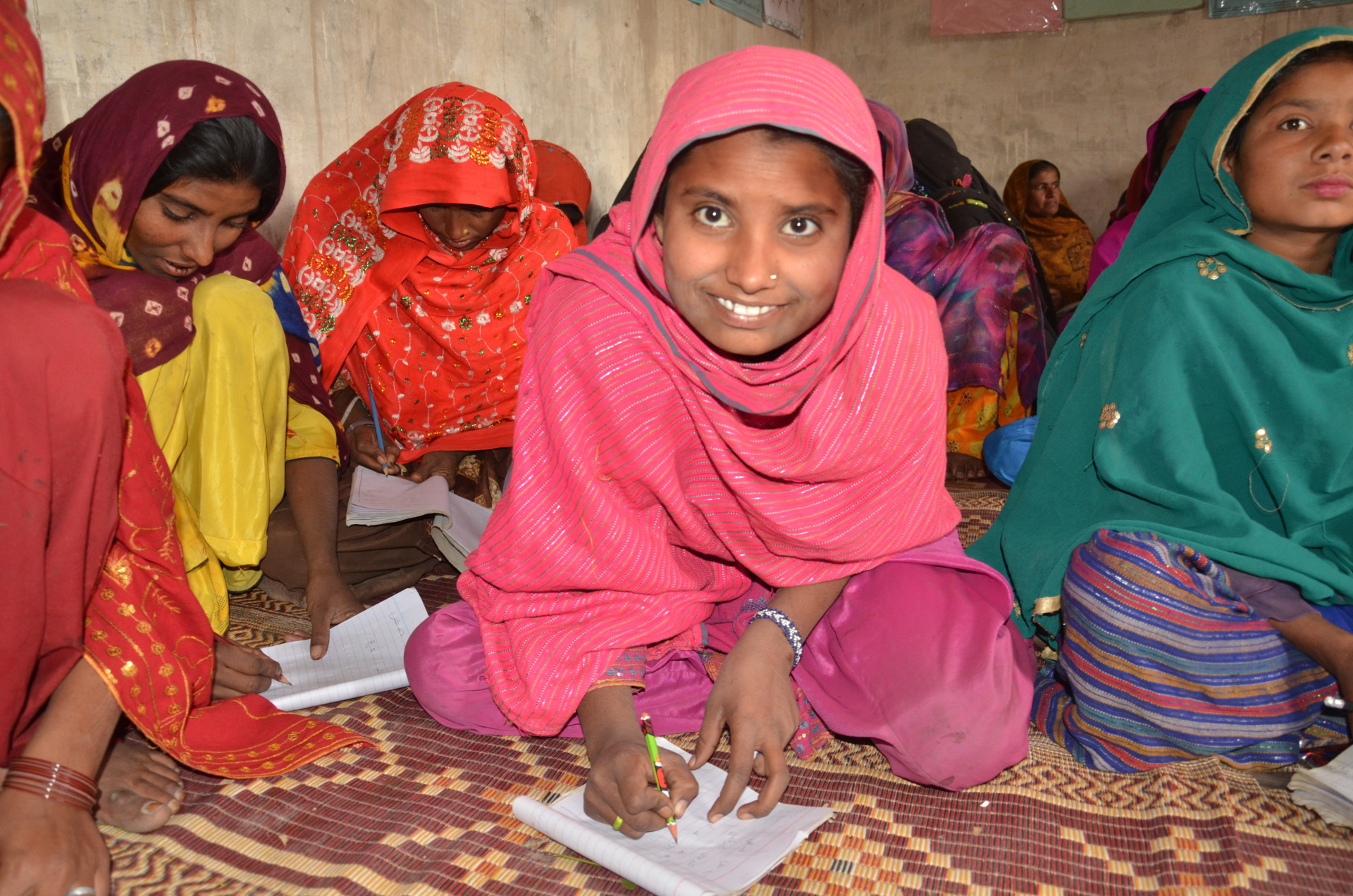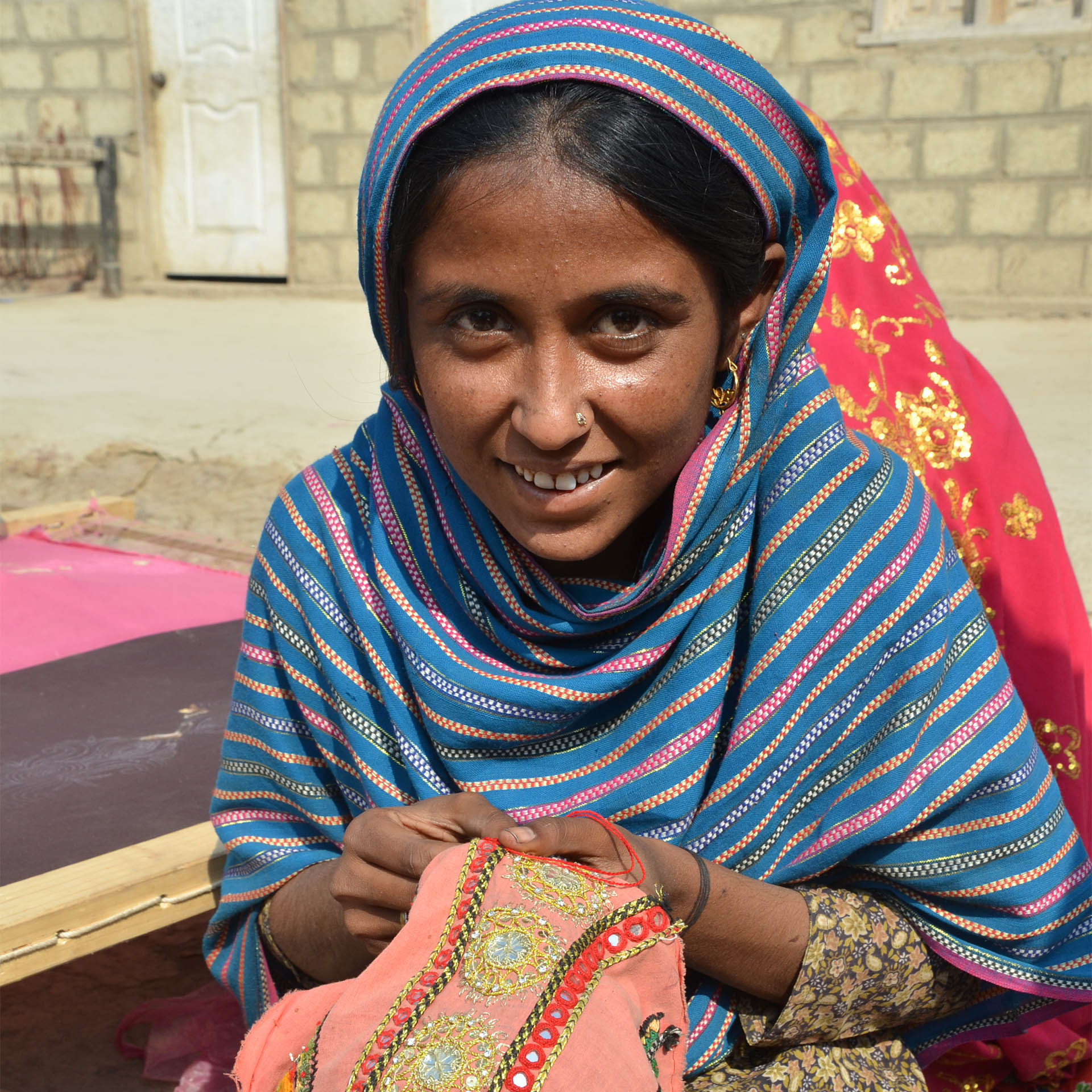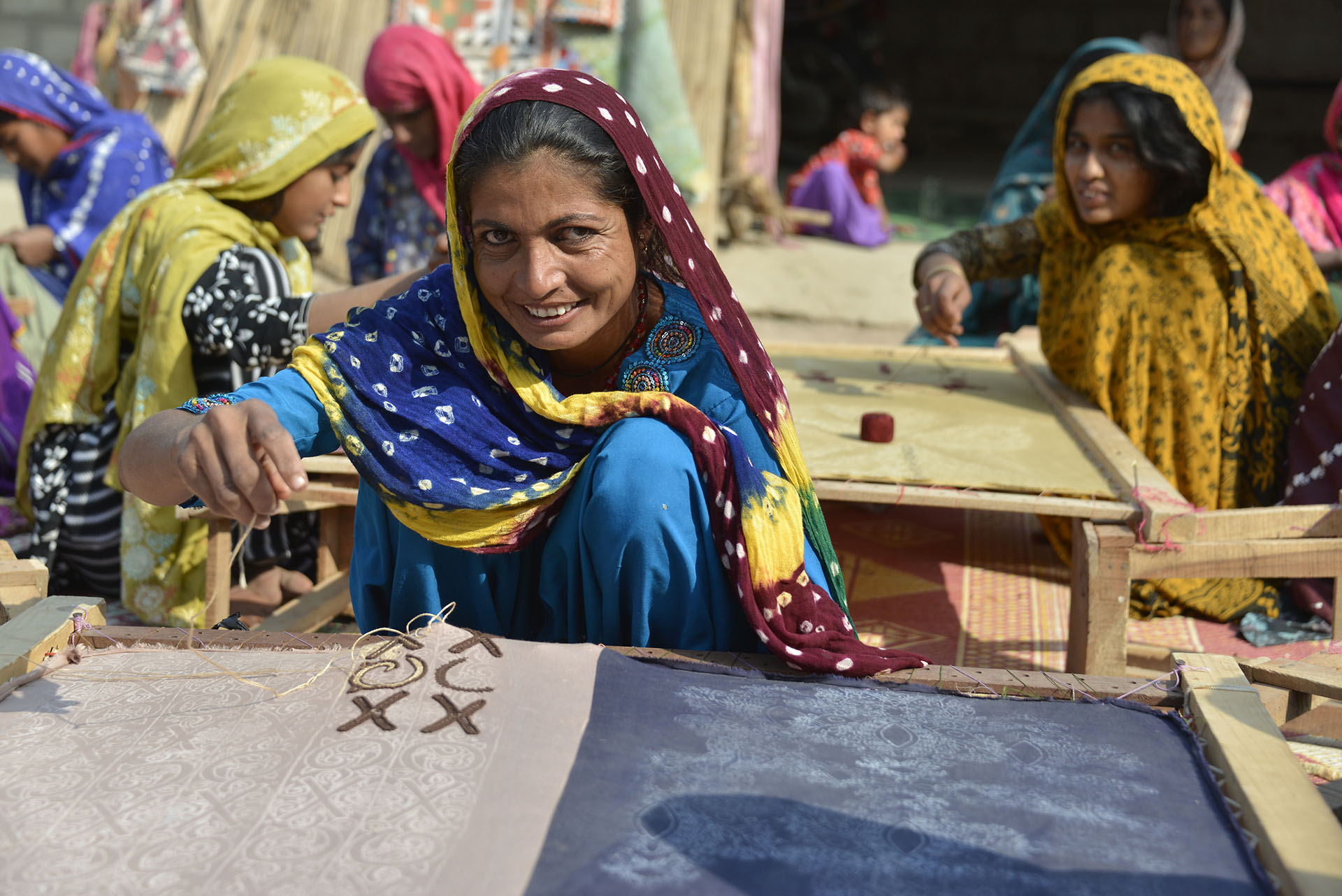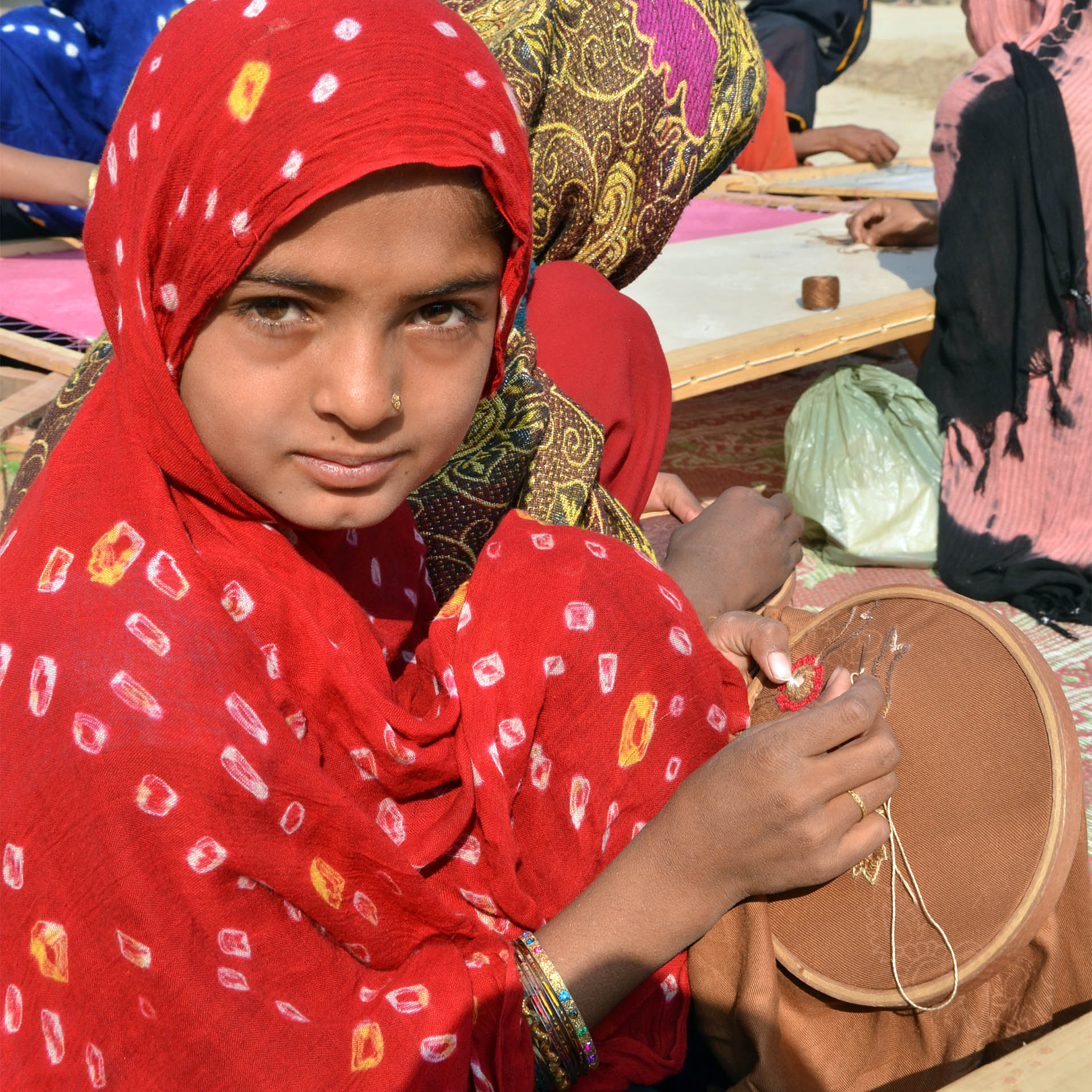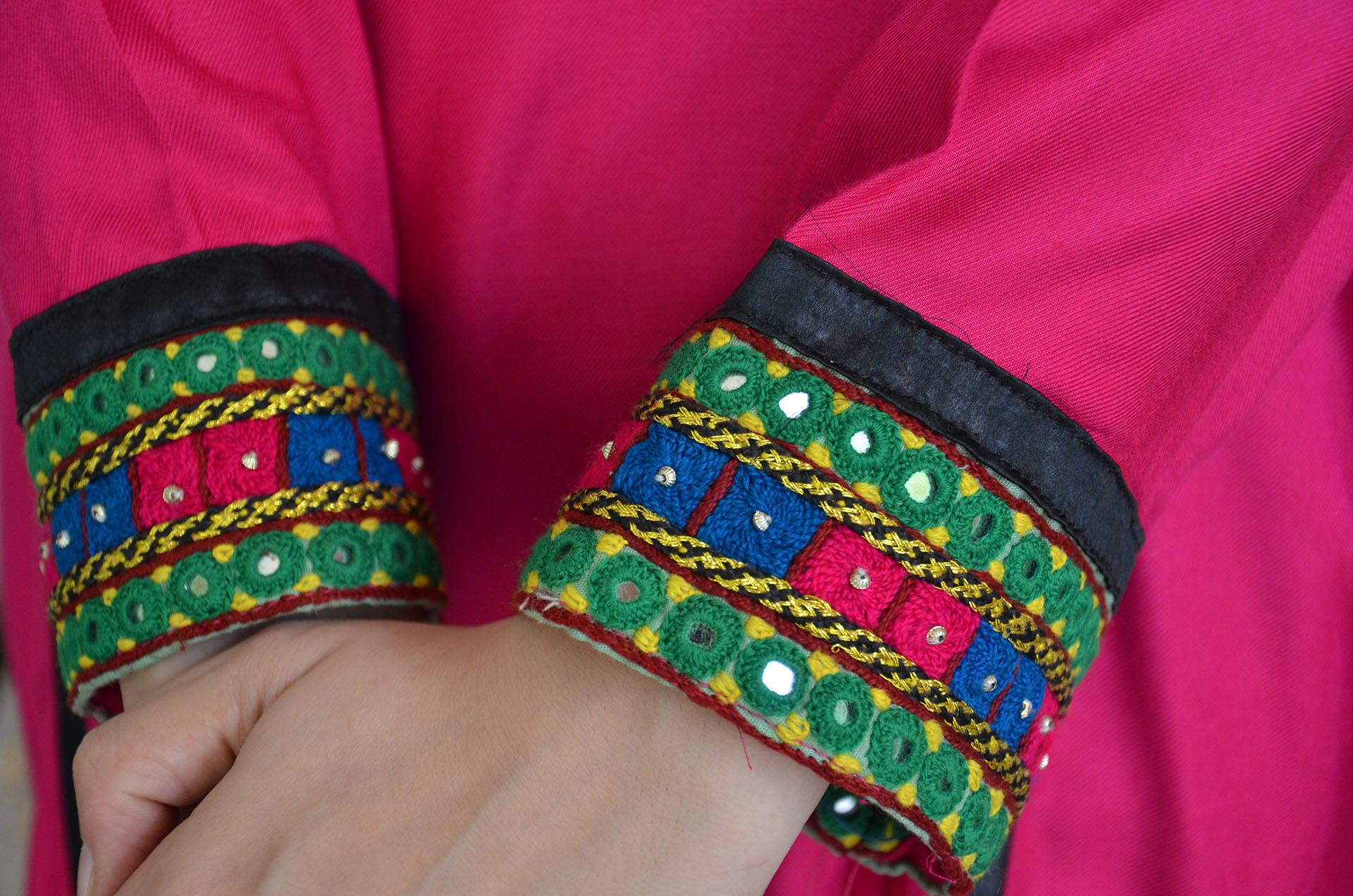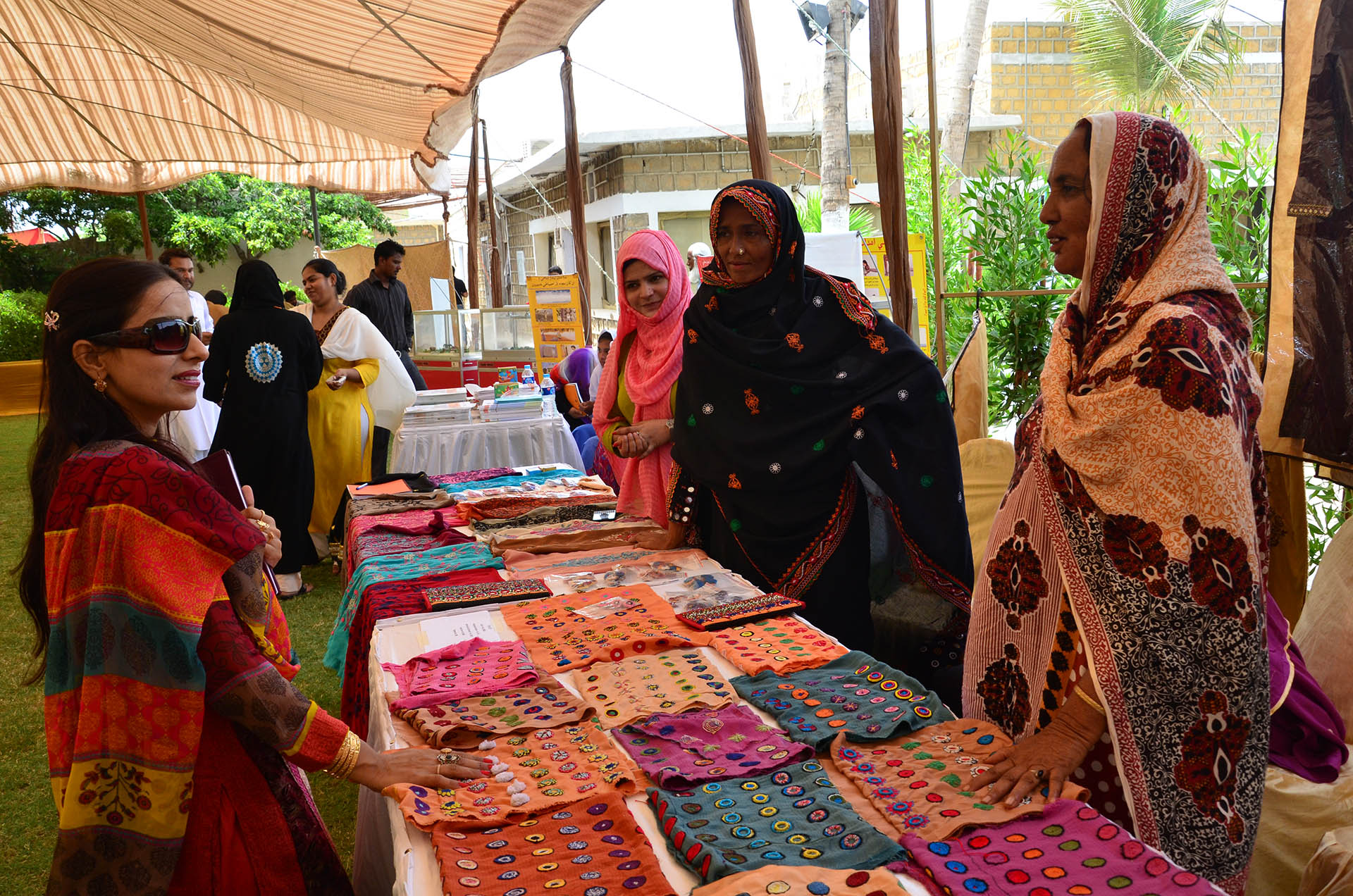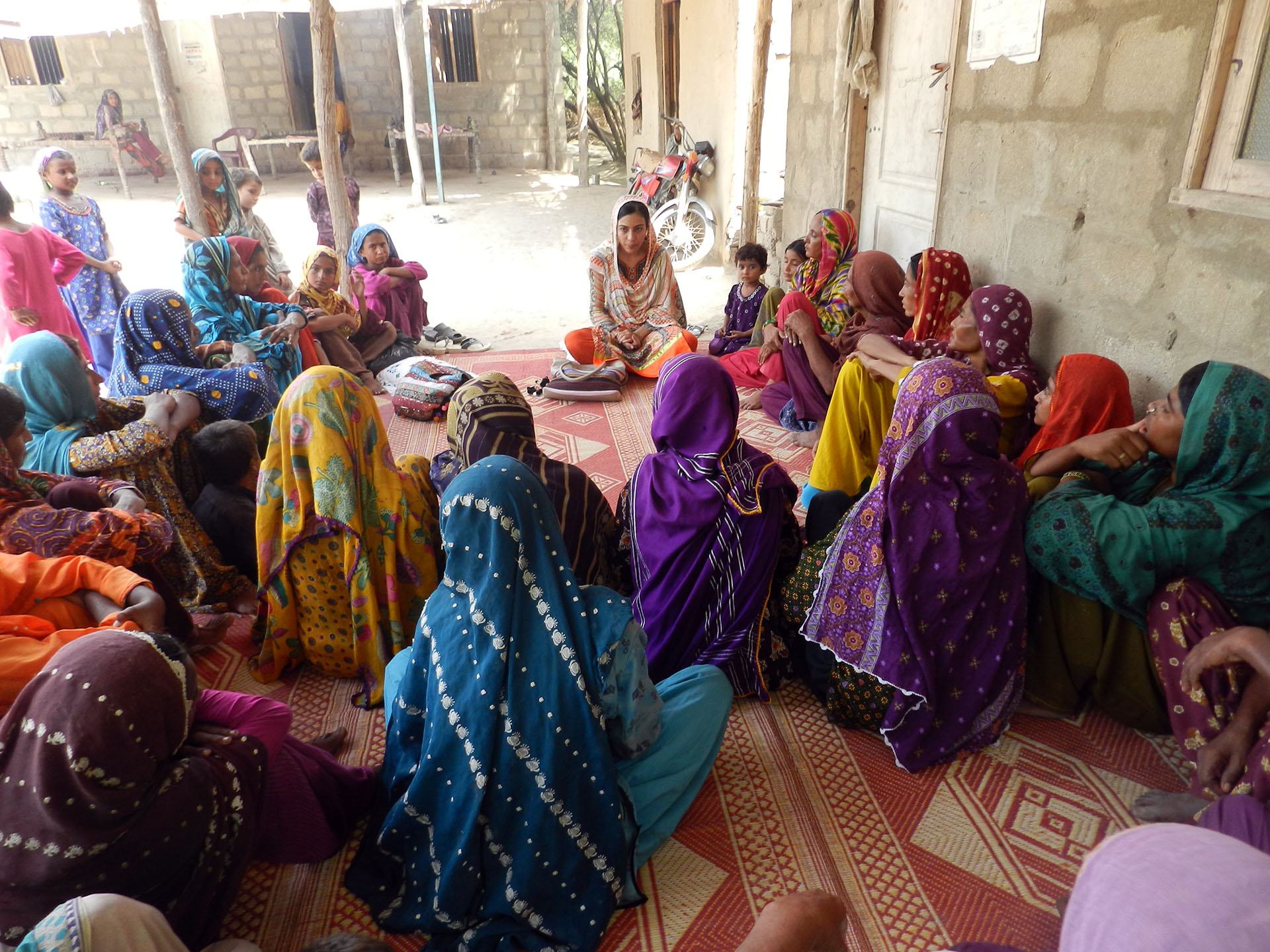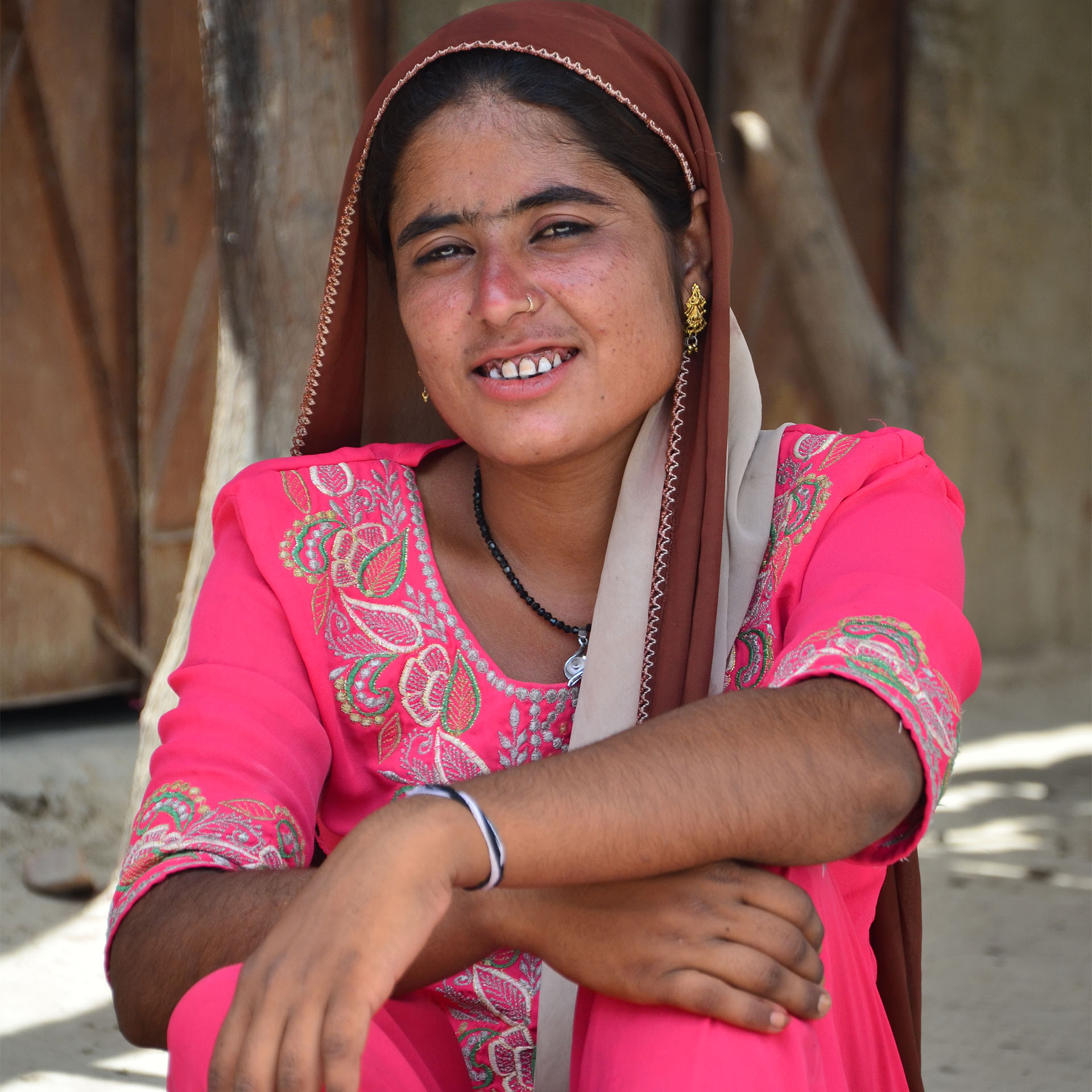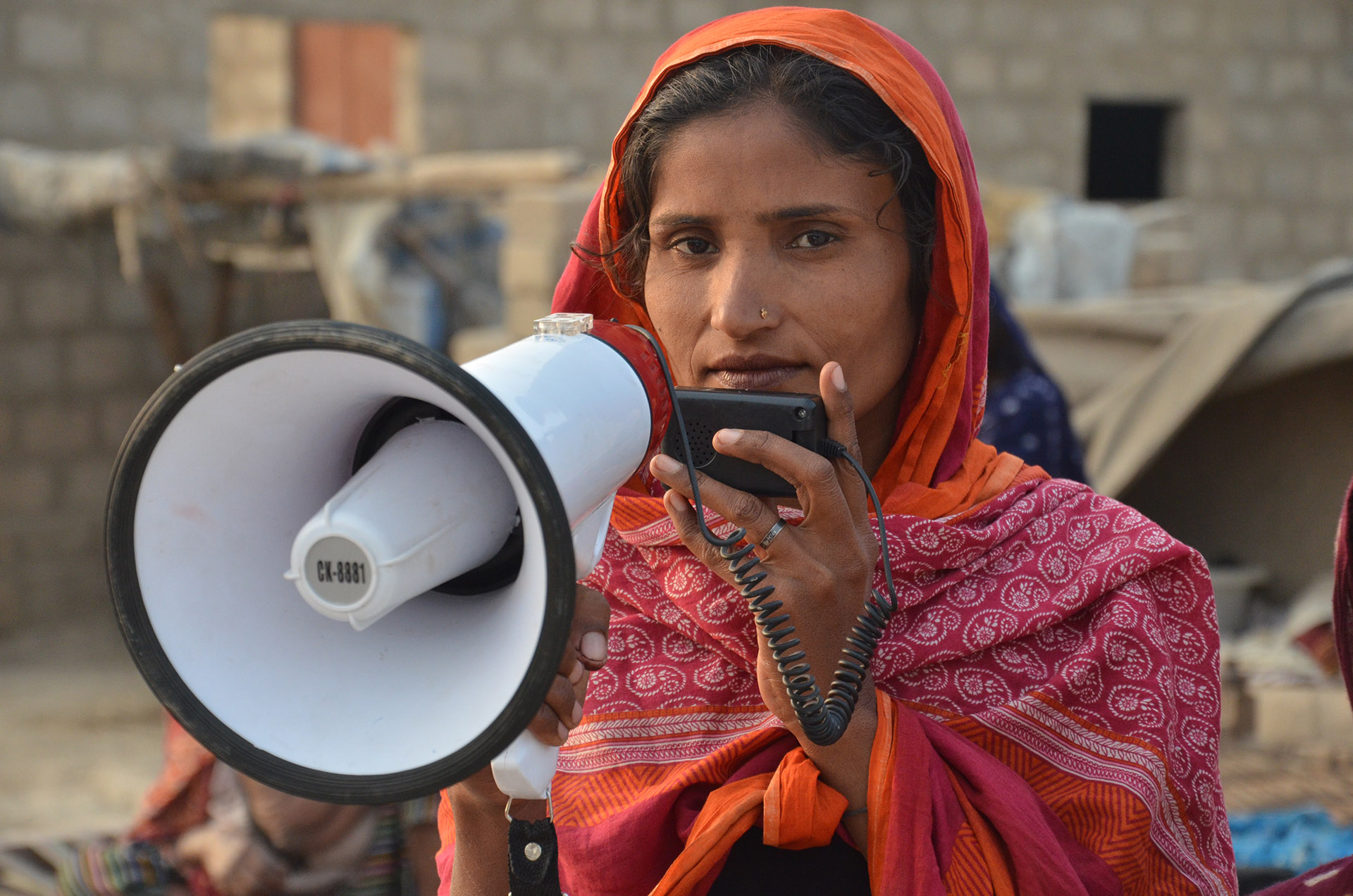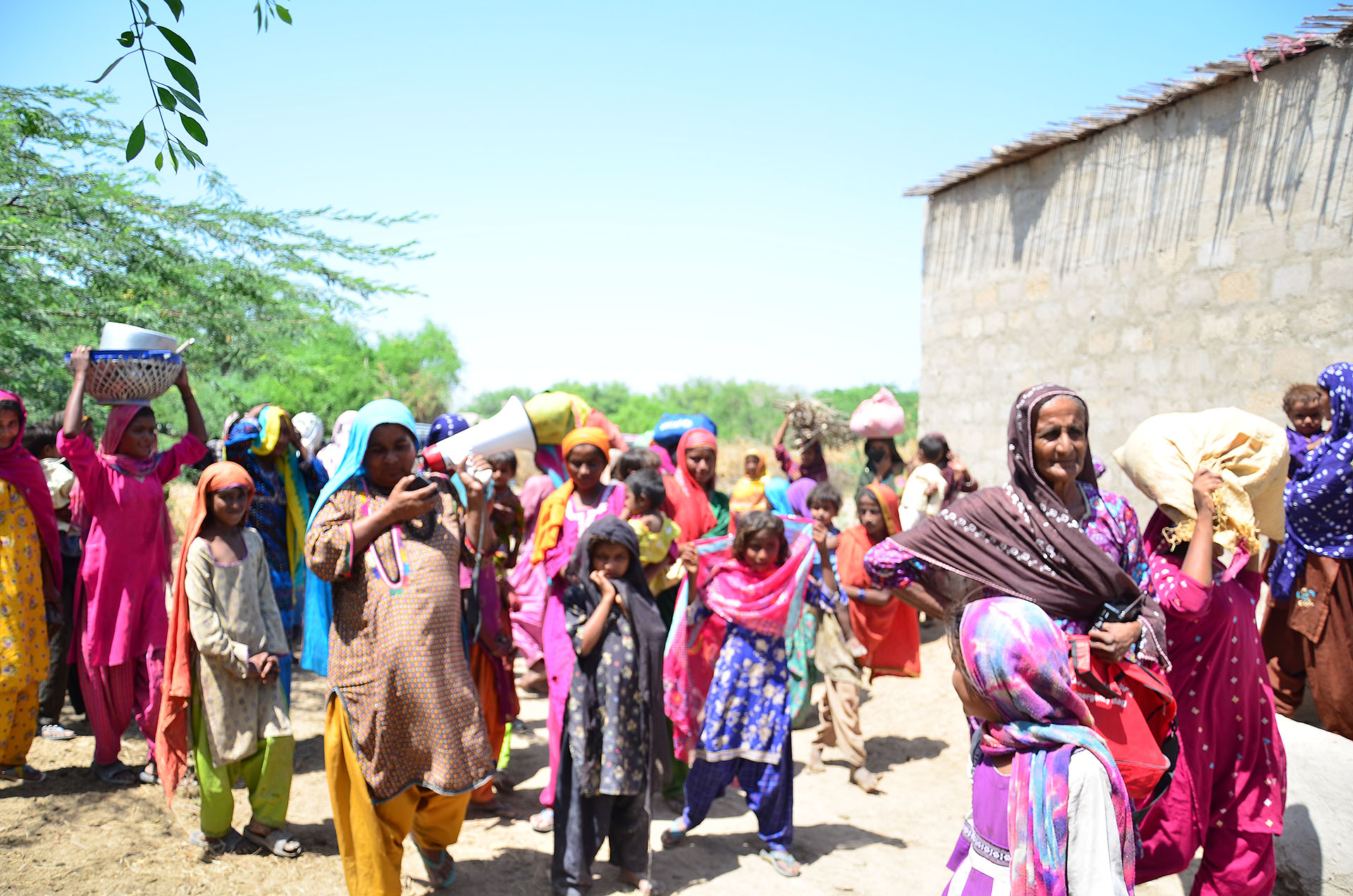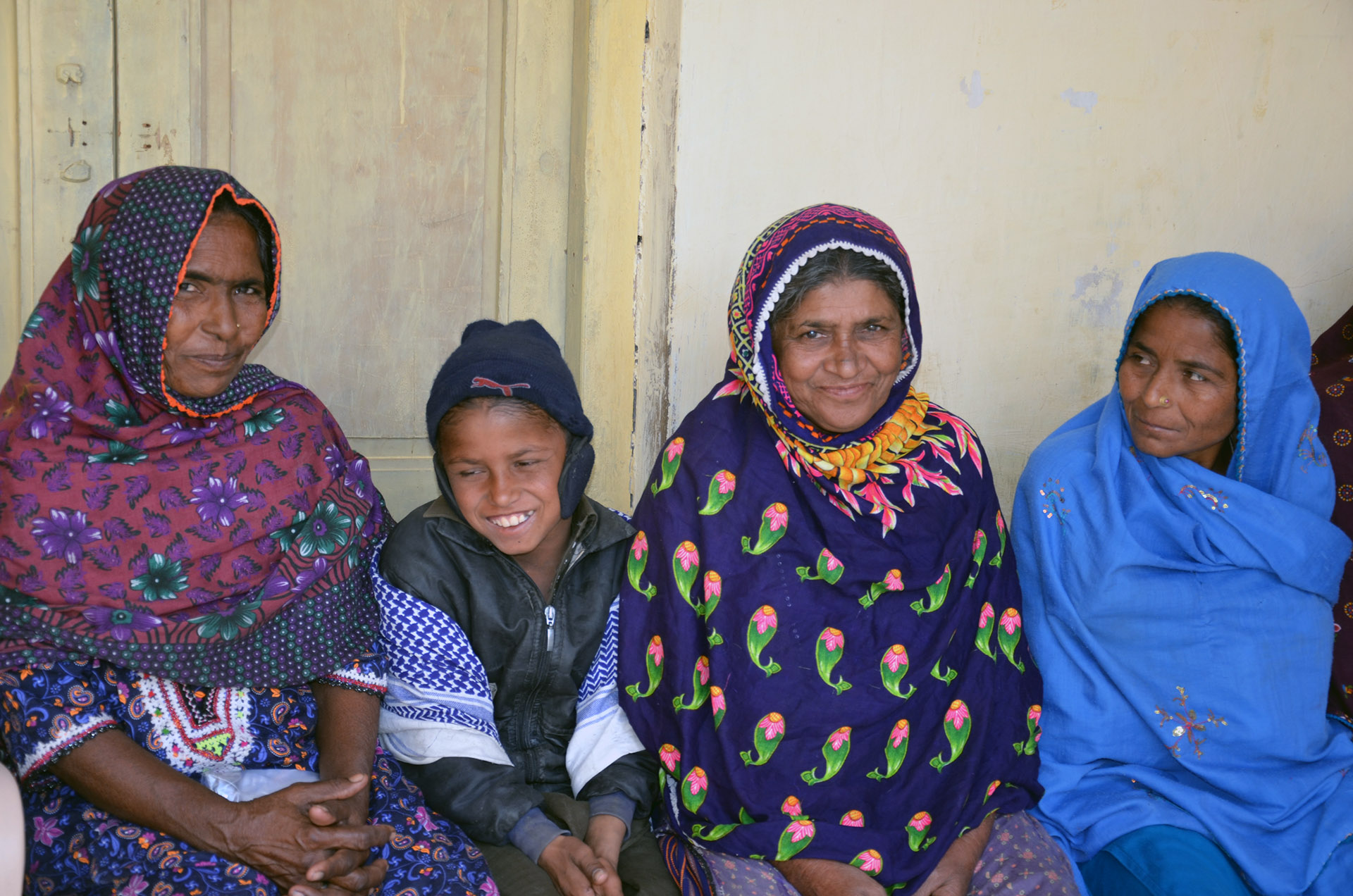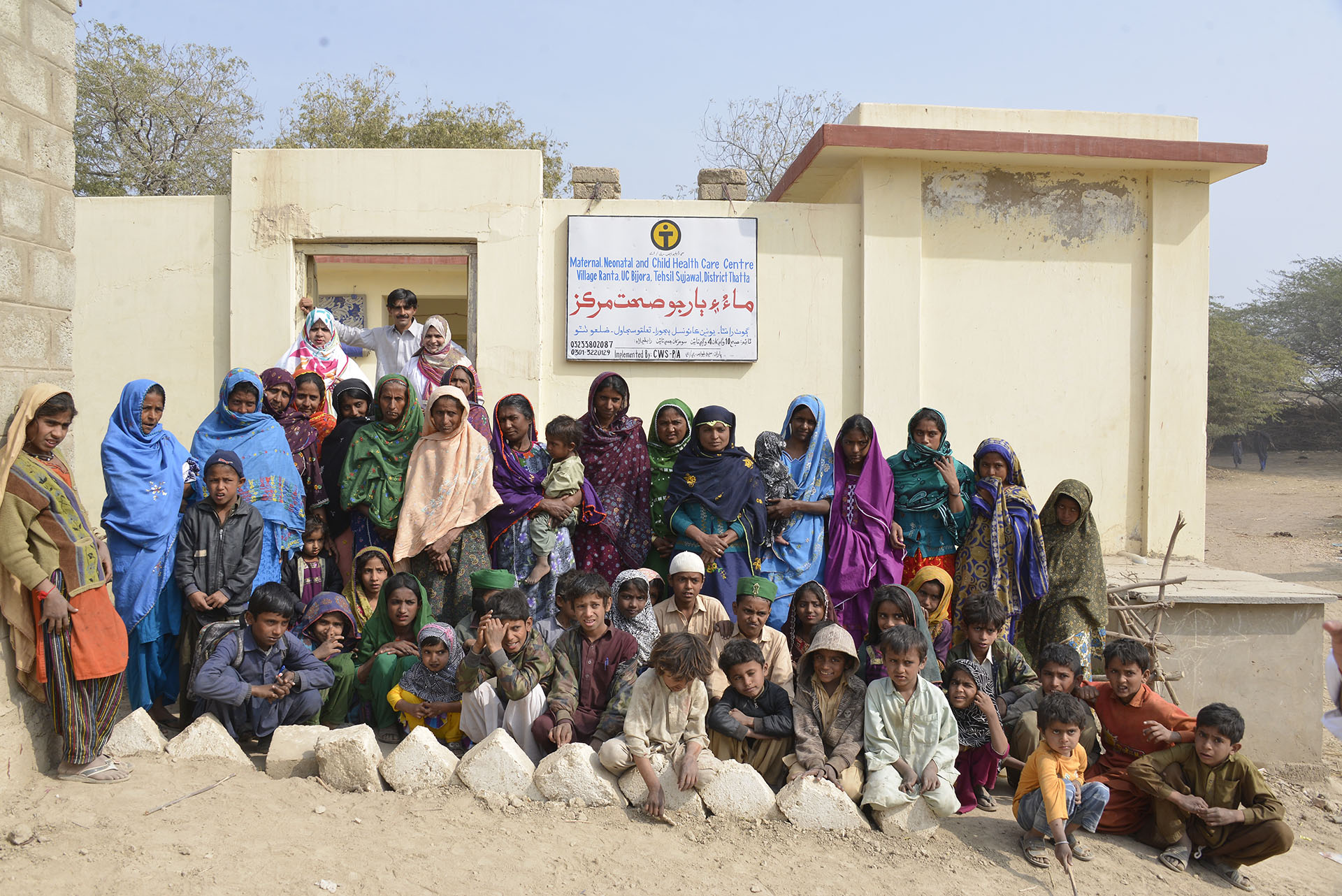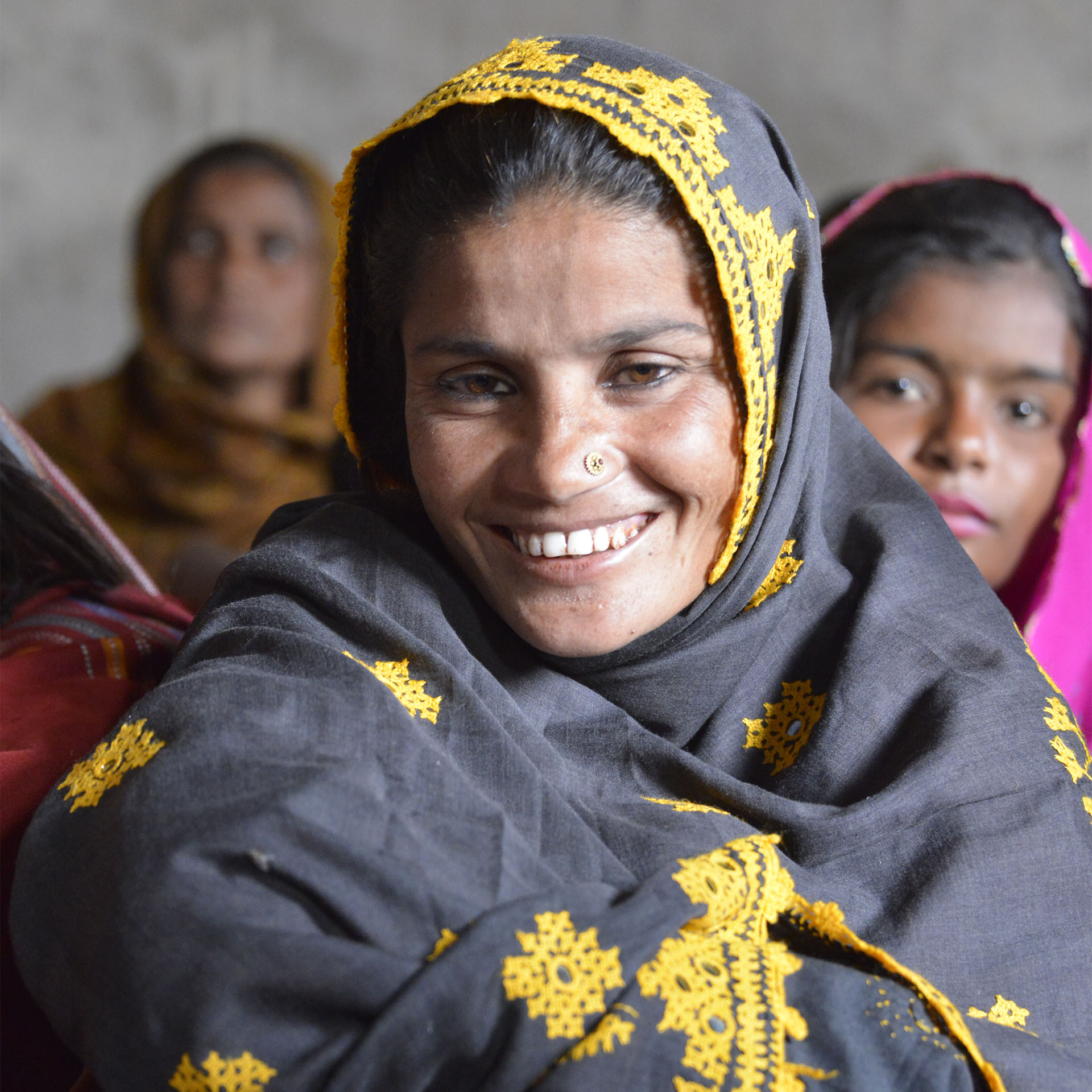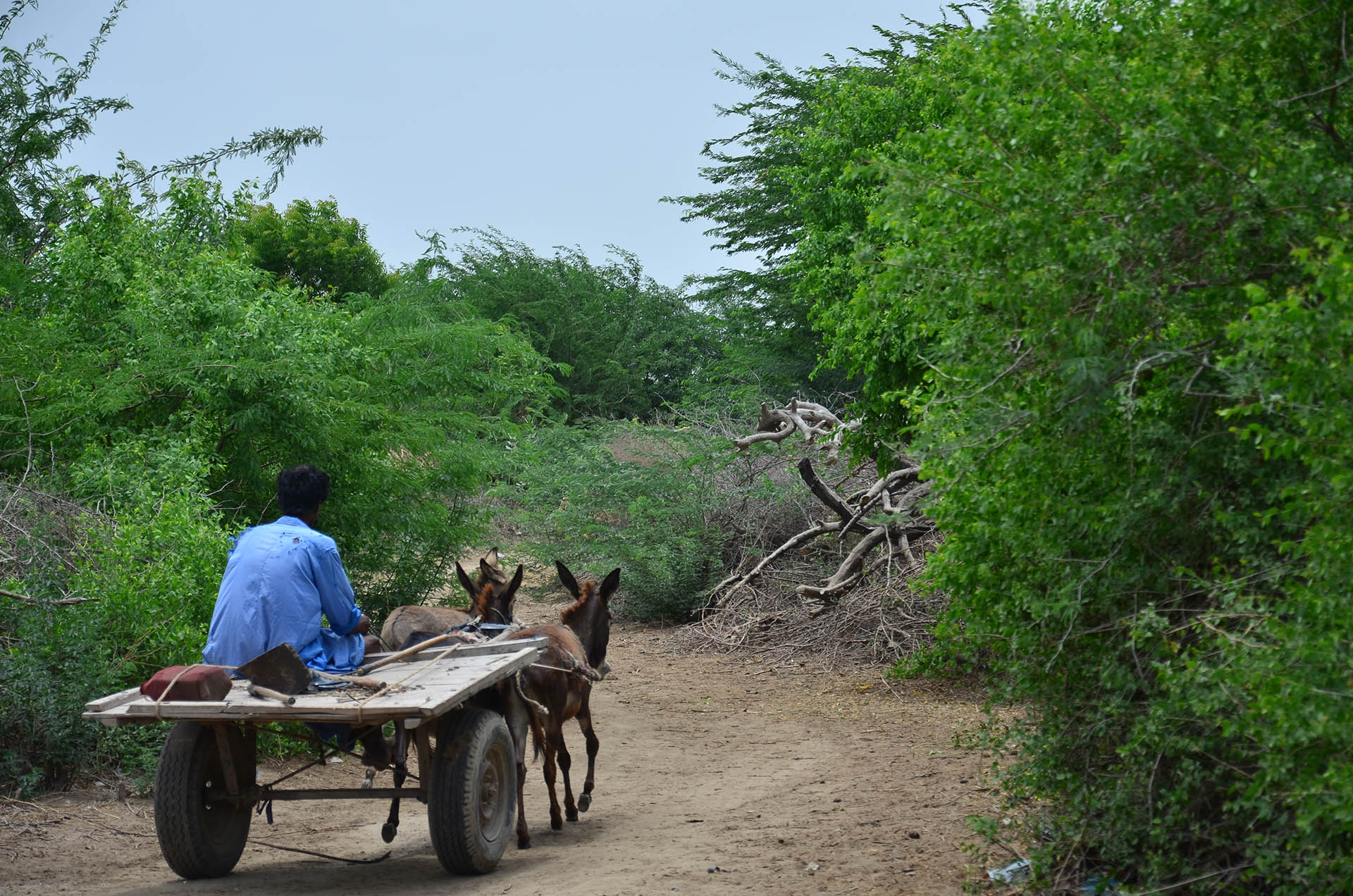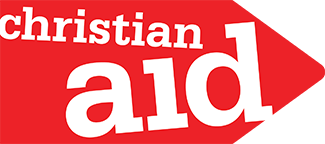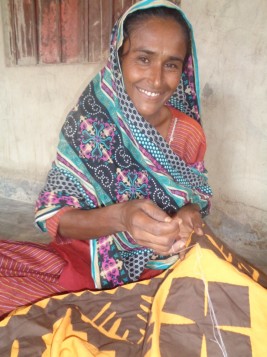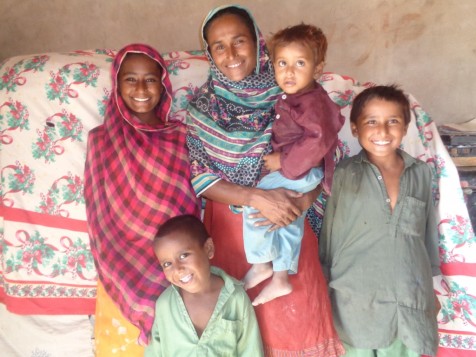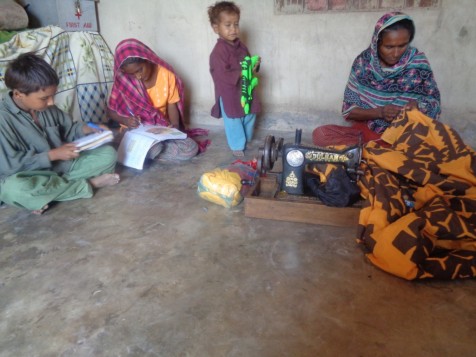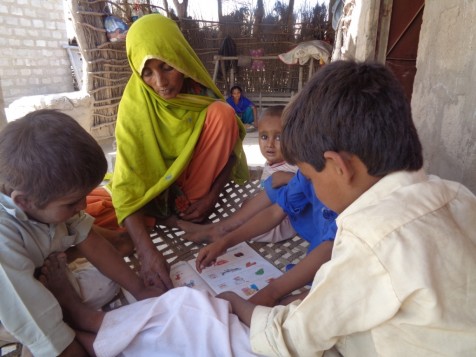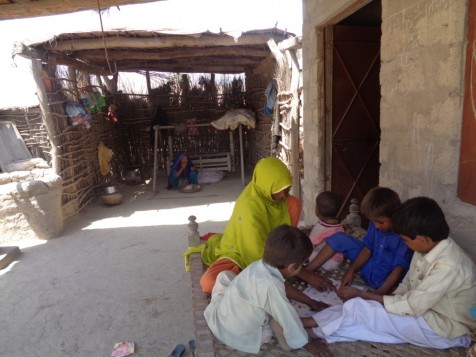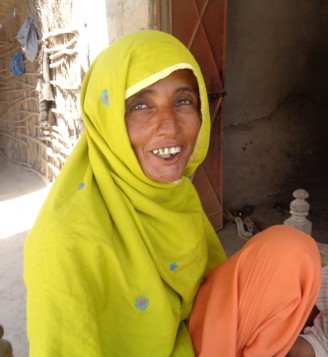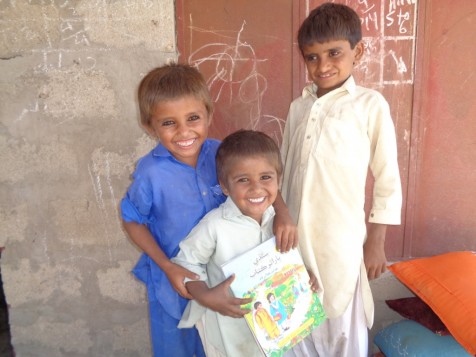Before Raheema participated in adult literacy and vocational training, she faced difficulty in meeting her family’s needs. She lives with her four children and husband who earns a meager daily wage in Karo Mallah Village, Thatta. Raheema always wanted her children to be educated; she enrolled two of her children (one girl and one boy) in school, but due to financial constraints she was unable to continue her daughter’s education. While describing her concerns, she said, “If my children are not well, I am unable to take them to a hospital since I don’t have money.”
Due to poverty and social barriers, Raheema did not receive an education; however, her passion to learn motivated her to join the adult literacy center and vocational training center established by Community World Service Asia. Learning to read and write, she began passing on these basic skills to her children.
Because of her fine skills in appliqué work; she was selected as a master trainer which gave her an opportunity to teach the same skill to other women. An exposure visit to markets in Karachi enabled Raheema to understand the market trends, designs, color scheming, and how she can utilize her skills for a variety of products. “With assistance from Community World Service Asia, I received two orders from the buyers in Karachi, for myself and also for other trainees in my village,” she shared.
“I managed to purchase stationery, uniforms, and paid other expenses with my income in order to reenroll my children in school.”
Raheema generates income by making embroidered suits, pillow covers, bed sheets, and other products. She is now hopeful to manage the educational expenses of her children. “I am thankful to Community World Service Asia for giving me the skills, exposure, and a way to earn a living. I have good appliqué work skill; initially the products I used to make were only catering to the market in my village and surrounding areas. The exposure visits enabled me to enhance my marketing knowledge and now by utilizing the same skill I can make a variety of colorful products with beautiful designs.”
Community World Service Asia with financial support from Christian Aid (CA) is successfully implementing the project, Alleviating Poverty through Women’s Empowerment and Livelihoods Development with a Disaster Resilient Approach in Union Council (UC) Bijora, Thatta, Pakistan – Phase II. The project aims to reduce poverty and gender inequality among highly marginalized women and men through socio-economic empowerment and improved disaster resilience in disaster prone area of Thatta.





